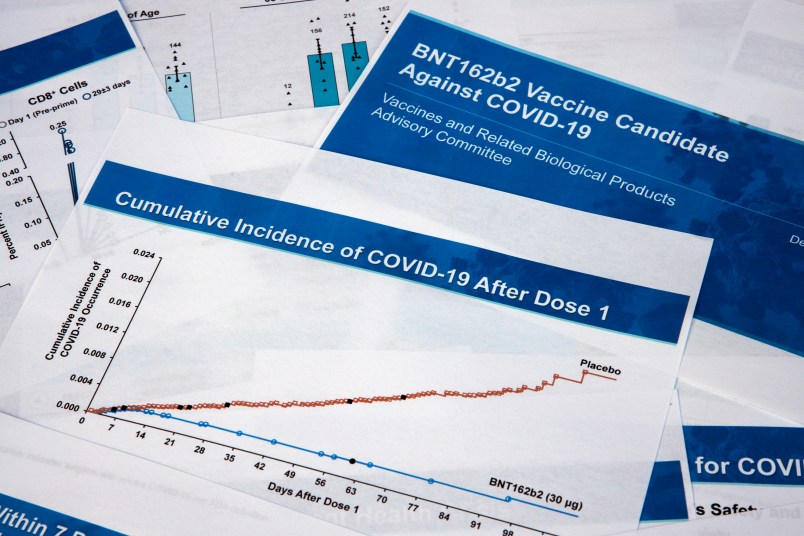As we noted last week, Pfizer says it plans to seek FDA approval next month for booster shots of its COVID vaccine. This is a third dose of the same vaccine many of us have already received two doses. The FDA and CDC responded quickly that for now a third dose was unnecessary. I think this was best interpreted not so much as a disagreement as a clear signal from the CDC/FDA that they will set national vaccine policy, not Pfizer.
Lurking in the background is the issue of cost.
Yesterday on Face The Nation Scott Gottlieb, former Trump era FDA commissioner who also sits on Pfizer’s board, said the country had “probably missed the window” for booster shots for the Delta variant. He said that people who got the vaccines early may already see some declining efficacy.
“If we don't get started, we’re not going to be in a position to have boosters available should we need them come fall,” @ScottGottliebMD says. “I think, quite frankly, we’ve probably missed the window for providing boosters for the Delta variant.” pic.twitter.com/GENXQzMRU4
— Face The Nation (@FaceTheNation) July 11, 2021
Let me note that Gottlieb was head of the FDA under Trump before the beginning of the pandemic. And notwithstanding the Trump association, he’s been a pretty credible voice on COVID throughout the pandemic. But my read of the latest studies and reports is that there is little evidence for declining efficacy at this point. (No one is more than eight months into their vaccination.) The more open question is efficacy against the Delta variant and a likely new wave, mostly among the unvaccinated this fall.
But there’s also this issue. Back in March Pfizer executive Frank A. D’Amelio was asked about the possibility of price hikes for the vaccine as the world moved from the current crisis footing into a period where COVID was endemic in the human population but largely controlled. He said Pfizer very much plans to hike the price.
From a CBS News write up …
“So if you look at how current demand and current pricing is being driven, it’s clearly not being driven by what I’ll call normal market conditions, normal market forces. It’s really been driven by kind of the pandemic state that we’ve been in and the needs of governments to really secure doses from the various vaccine suppliers,” D’Amelio explained. “So what we believe, what I believe is as we move from a pandemic state, from a pandemic situation to an endemic situation, normal market forces, normal market conditions will start to kick in. And factors like efficacy, booster ability, clinical utility will basically become very important, and we view that as, quite frankly, a significant opportunity for our vaccine from a demand perspective, from a pricing perspective, given the clinical profile of our vaccine,” he said. “So clearly, more to come here. But we think as this shifts from pandemic to endemic, we think there’s an opportunity here for us.”
When the booster story came last week a few readers flagged this to me and I did some poking around to find out more. As near as I could figure, Pfizer hasn’t returned to this since March. Presumably, such frank discussions of raising the price didn’t go over well outside of the investor press.
My point here is not to say last week’s booster announcement was a money making gambit or that Gottlieb is just shilling for his company. I’m not only not suggesting that I don’t think that. It’s more complicated. Pfizer – probably along with Moderna – has what is at this point the most effective vaccine in the world. They’re clearly pretty pumped about that and everyone associated with it is going to see current events through that prism. (I got the Pfizer vaccine; and I’m pretty pumped about it.) But Pfizer’s business interests are inseparable from these policy decisions. And for now there’s a big “may” attached to all these arguments about the need for boosters or new vaccine formulations. The US government is also clearly much more focused on getting more of the US population vaccinated in the first place than worrying about hypothetical efficacy declines over time. Added to the mix is that the US government is currently paying for all shots in the US and having set that precedent that will likely be hard to pull back from. (Not that it should: the cost of critical vaccines, as long as they can be sourced for a reasonable price, is a good thing to socialize.)
As I said, I think this minor public disagreement is mainly a matter of the US government wanting to make clear that it will make national public health policy, not Pfizer.
So keep all these factors in mind.






